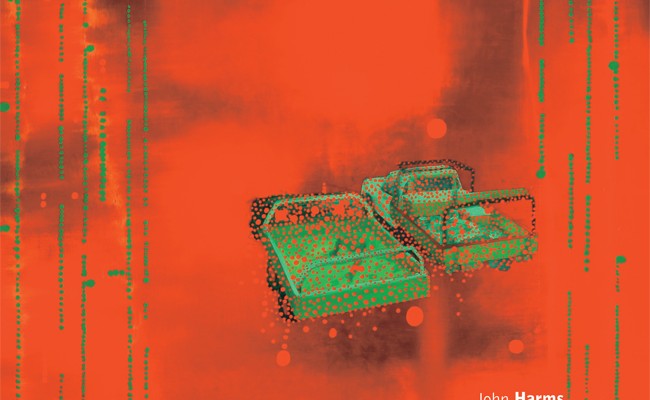Fredric Jameson has suggested that “now it is practical thinking which everywhere represents a capitulation to the system”. The imperative to accept the world as it is, to ‘be realistic’, to work within existing paradigms and structures, has drowned out the old Situationist call to social dreaming: ‘be reasonable, demand the impossible’. These days it seems de rigueur, only common sense, to assume that there is no alternative to the existing order of things and the present political system, and this assertion can be powerful even for those of us who wish to resist the conventional orthodoxy.
This issue of Overland explores experiments ‘against reality’. What might it mean to try and act or think ‘against reality’? What alternatives (questions, expressions, hopes, demands, ways of imagining) might result?
Many of the articles and stories respond to this rather elastic theme not only politically but also artistically, personally, creatively and formally.
In his Overland lecture, John Harms reflects on growing up in a Lutheran family with deeply-held spiritual beliefs and considers the construction and complex nature of political affiliation: the allegiances and alliances that develop within families and cultures, sometimes almost accidentally, by association, or by osmosis. Harms charts his own shift away from an identification with the conservative side of politics and his increasing awareness of, and dissent to, much of what was accepted and acceptable in Australian political life.
“I had”, Harms wryly observes, “grown up being quietly socialised in the dominant capitalist ideology, without ever realising it.”
We devote a section to science fiction writing, finding the device of cognitive estrangement that the form employs pertinent to attempts to reframe reality, dispense with it and perceive it anew. Rjurik Davidson interviews authors China Miéville and Kim Stanley Robinson about the relationship between SF, fantasy, politics, science and history. There are speculative fiction stories by Ben Peek and Susan Wardle, and an excerpt from a novel-in-progress by Jill Sparrow and Paul Voermans.
Jess Whyte argues, in ‘Contesting Reality’, for the need for radical politics to go beyond the discourse of rights and rule of law to posit a genuine challenge to contemporary capitalism and the curtailing of what were once basic human liberties. “To escape our current impasse,” she suggests, “we must find the courage to rethink the fundamental assumptions of liberalism.”
In her witty and elegant photo-essay Francesca Rendle-Short recollects her experiences as the daughter of a ‘morals campaigner’, while performance artist Fiona McGregor views the landscape of Poland through a lens permeated by a dual sense of history and modernity. As she visits sites important to Solidarność struggles, she is also on a journey where, in her performances, she literally bleeds.
Michael Head’s examination of rising militarism and Australia’s raft of ‘anti-terror’ legislation and Katherine Wilson’s ‘Guns, Guards and Gates’ provide a useful segue into the other and obverse perspective that emerges in this issue: how unreal reality really can be. For all the claims to necessity and practicality that defenders of the present system make, and regardless of economic rationalism’s soothingly anodyne and remorselessly dispassionate language of downsizing, rationalisation and productivity, a system that could hold Dr Haneef for twelve days without charge, cancel his visa and place him in a detention centre once he was released on bail, and then drive him from the country, apparently all on the basis of a discarded SIM card relinquished to a distant cousin, seems to bear more resemblance to the nightmarish scenarios of a Kafka novel than the ‘real world’.
A nice place to visit, as the saying goes, but you wouldn’t want to live there.
© Kalinda Ashton
Overland 188 – spring 2007, pp. 2-3
Like this piece? Subscribe!

